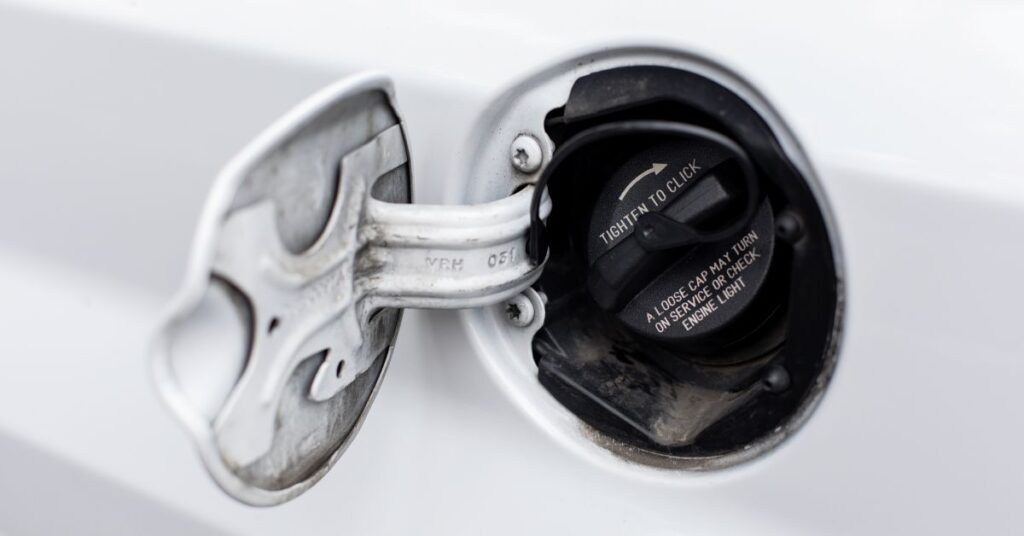
Table of Contents
Fuel additives play a helpful role in maintaining your car’s health and optimizing its performance. From everyday commuters to classic cars, different fuel additives cater to various needs of your vehicle. This article will explore the diverse range of fuel additives available and guide you on when and why to use them.
What Are The Different Fuel Additives Available?
Fuel additives come in various forms, each designed to address specific aspects of your vehicle’s performance and maintenance. Let’s delve into some of the most common types:
Fuel System Cleaner
While your fuel filter catches a lot of debris, contaminants can still get through, especially those dissolved in the fuel or clinging to your intake system. A fuel system cleaner works to dissolve this gunk that accumulates on intake valves, cylinder heads, and other areas where fuel passes. This type of cleaner, such as products like Seafoam, is particularly effective because it travels through the engine via the fuel, thus cleaning all the areas that interact with the fuel. Using a fuel system cleaner is recommended periodically to maintain engine health.
Octane Booster
Octane levels at gas stations typically range from 87 to 93. Most cars can run on these levels without issue, but high-performance engines often require higher octane fuel. An octane booster can be a quick fix if you’ve mistakenly filled up with a lower octane fuel, especially in performance cars that demand higher octane levels. Though it doesn’t directly boost speed, it optimizes high-performance engines. Keeping a bottle in your trunk can be an excellent precautionary measure.
Fuel Stabilizer
Fuel stabilizers are essential for vehicles that aren’t driven regularly. Gasoline, a blend of various chemicals, can degrade over time, leading to water separation and potential corrosion. Fuel stabilizers stabilize the fuel composition, making them ideal for cars that sit idle for extended periods, like classic cars or seasonal machinery.
Ethanol Additives
Ethanol additives are used to combat the effects of ethanol in gasoline, which can include attracting moisture and causing corrosion in the fuel system. They stabilize the fuel, reducing moisture absorption and preventing corrosion. This is particularly important for vehicles not compatible with higher ethanol blends or stored for long periods.
Ideal for modern and older vehicles, these additives help maintain the engine’s longevity and efficiency by mitigating ethanol-related issues.
Corrosion Inhibitors
These additives are designed to protect the internal components of the fuel system from rust and corrosion. They are crucial in environments with high humidity or for cars that are infrequently used, as they help maintain the integrity of the fuel system over time.
Particularly useful for classic cars or vehicles in coastal areas, corrosion inhibitors can significantly extend the life of the fuel system components.
Diesel Fuel Anti-Gel Additives
Diesel engines can face the unique challenge of their fuel turning into a gel in cold weather due to the paraffin wax content. Anti-gel additives keep diesel fuel in a liquid state in sub-zero temperatures, ensuring smooth fuel flow and preventing blockages in the fuel system.
Lead Substitute
Lead substitutes are used in older vehicles designed to run on leaded gasoline. They provide the valve seat protection that leaded fuel used to offer, without the environmental and health risks associated with lead.
Crucial for vintage cars that haven’t been updated to run on unleaded fuel, these additives are added to each fuel tank to ensure continuous protection.
How To Add A Fuel Additive To Your Car
Adding a fuel additive to your car is a simple process. Add the chosen additive when your gas tank is about a quarter full. Follow the instructions on the bottle for the correct amount based on your vehicle’s fuel tank capacity. After adding the additive, fill up your tank to mix the additive thoroughly with the fuel. If you’re unsure about doing it yourself, professional services like McCullough NAPA Auto Care can assist with adding fuel additives.
FAQ About Fuel Additives In Cars
Fuel additives can be beneficial for your car when used correctly. They are designed to address specific issues like cleaning fuel injectors, stabilizing fuel, and improving engine performance. However, it’s important to use the right additive for your specific needs and follow the manufacturer’s guidelines.
You should consider adding a fuel additive to your car when you notice performance issues that the additive is designed to address, such as engine knocking, reduced fuel efficiency, or starting problems. It’s also advisable to use certain additives, like fuel stabilizers, when storing a vehicle for an extended period.
Yes, fuel injector additives do work. They are formulated to clean the fuel injectors by removing carbon deposits and other build-ups, which can improve engine performance and fuel efficiency. Regular use of fuel injector cleaners can help maintain the cleanliness and efficiency of the fuel system.
The effectiveness of a fuel additive depends on the specific issue you’re trying to address. For general cleaning and maintenance, fuel system cleaners are highly effective. For improving fuel quality or modifying specific properties like octane levels, octane boosters or ethanol additives might be more appropriate.
Potential negatives of fuel additives include compatibility issues with certain engine types or fuel systems, and the risk of using the wrong type of additive for your specific needs. Overuse or incorrect use of additives can potentially lead to engine damage or reduced efficiency.
It’s generally not necessary to use fuel injector cleaner every time you fill up. While these additives are beneficial, they are typically designed for use every few thousand miles or as needed. Frequent use is not only unnecessary but could also be a waste of money.
Yes, you can put fuel injector cleaner in a half tank of fuel, but it’s essential to follow the instructions on the additive’s packaging. Some products may require a nearly empty tank for a more concentrated treatment, while others can be added to a half tank without issues.

